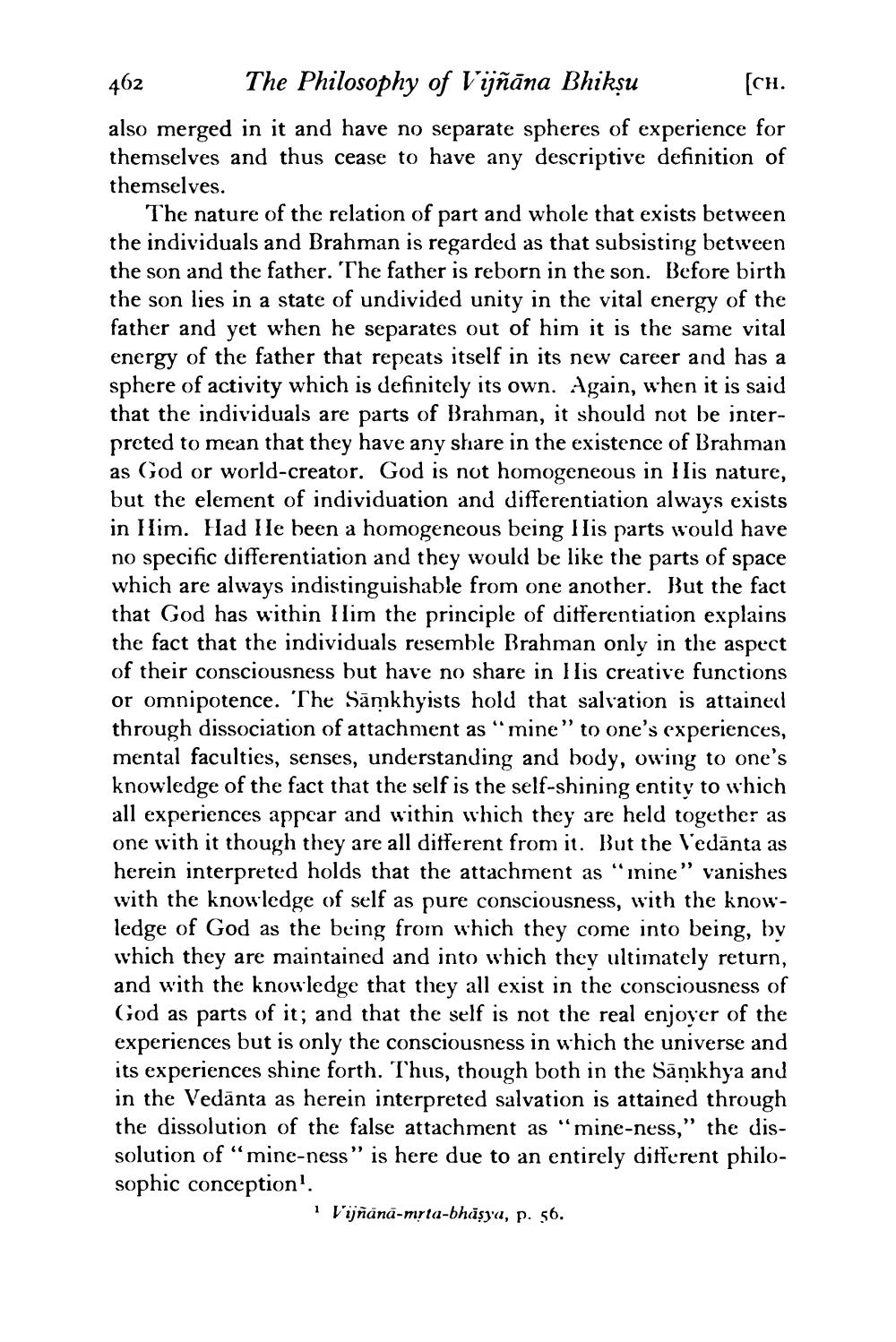________________
462 The Philosophy of Vijñāna Bhikṣu (CH. also merged in it and have no separate spheres of experience for themselves and thus cease to have any descriptive definition of themselves.
The nature of the relation of part and whole that exists between the individuals and Brahman is regarded as that subsisting between the son and the father. The father is reborn in the son. Before birth the son lies in a state of undivided unity in the vital energy of the father and yet when he separates out of him it is the same vital energy of the father that repeats itself in its new career and has a sphere of activity which is definitely its own. Again, when it is said that the individuals are parts of Brahman, it should not be interpreted to mean that they have any share in the existence of Brahman as God or world-creator. God is not homogeneous in Ilis nature, but the element of individuation and differentiation always exists in Him. Had Ile been a homogeneous being IIis parts would have no specific differentiation and they would be like the parts of space which are always indistinguishable from one another. But the fact that God has within Ilim the principle of differentiation explains the fact that the individuals resemble Brahman only in the aspect of their consciousness but have no share in llis creative functions or omnipotence. The Sāmkhyists hold that salvation is attained through dissociation of attachment as "mine" to one's experien mental faculties, senses, understanding and body, owing to one's knowledge of the fact that the self is the self-shining entity to which all experiences appear and within which they are held together as one with it though they are all different from it. But the l'edānta as herein interpreted holds that the attachment as "inine" vanishes with the knowledge of self as pure consciousness, with the knowledge of God as the being from which they come into being, by which they are maintained and into which they ultimately return, and with the knowledge that they all exist in the consciousness of God as parts of it; and that the self is not the real enjoyer of the experiences but is only the consciousness in which the universe and its experiences shine forth. Thus, though both in the Sānkhya and in the Vedānta as herein interpreted salvation is attained through the dissolution of the false attachment as "mine-ness,” the dissolution of "mine-ness" is here due to an entirely different philosophic conception'.
V'ijñānā-mrta-bhäşya, p. 56.




